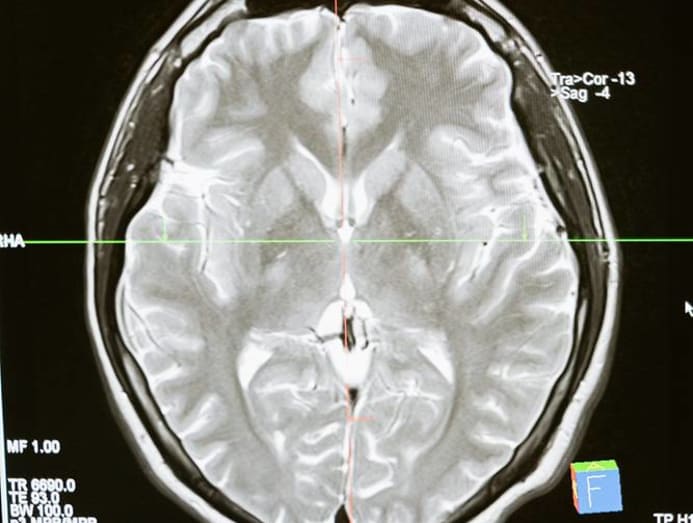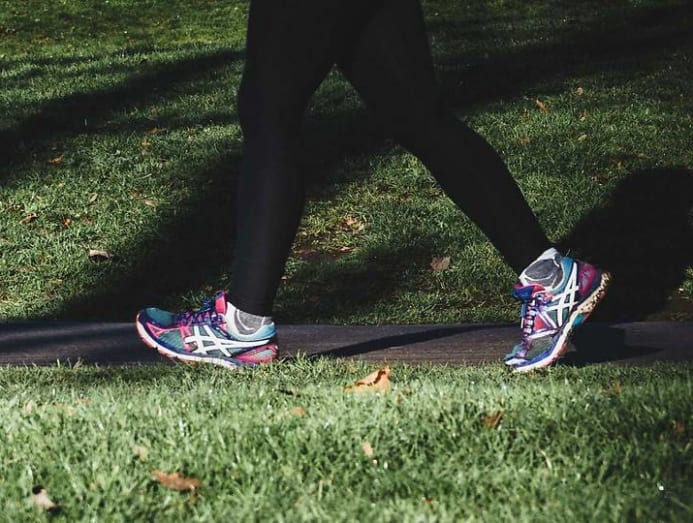Can brisk walking help your ageing brain and prevent dementia?
Advertisement
Wellness
Can brisk walking help your ageing brain and foreclose dementia?
In a study, center-aged and older people with early signs of retentiveness loss raised their cerebral scores subsequently they started walking oft.

(Photo: Freepik/jcomp)
Brisk walking improves brain health and thinking in aging people with memory impairments, according to a new, yearlong report of balmy cognitive impairment and exercise.
In the report, eye-anile and older people with early signs of memory loss raised their cerebral scores after they started walking ofttimes.
Regular exercise too amplified the healthy flow of claret to their brains. The changes in their brains and minds were subtle but consequential, the study concludes, and could have implications not simply for those with serious memory problems, just for any of us whose memories are starting to fade with age.
Most of united states, as we get older, volition find that our power to think and call up dulls a flake. This is considered normal, if abrasive.
But if the memory loss intensifies, it may get mild cognitive harm, a medical status in which the loss of thinking skills grows obvious enough that it becomes worrisome to you lot and others around you. Mild cognitive impairment is not dementia, just people with the status are at heightened adventure of developing Alzheimer's disease afterward.
READ: Wear a hat or bring an umbrella? We notice the best means to cool off in this heat
Scientists accept non nevertheless pinpointed the underlying causes of balmy cognitive harm, but there is some prove that changes in claret flow to the brain can contribute. Blood carries oxygen and nutrients to brain cells and if that stream sputters, so can the vitality of neurons.
Unfortunately, many people feel declines in the catamenia of blood to their brains with age, when their arteries stiffen and hearts weaken.

But the good news is that practise can increase encephalon blood flow, even when exercisers are not moving. In a 2022 neurological written report, the brains of physically active older men showed much better blood saturation than those of sedentary men, even when everyone was quietly resting.
The greater brain claret menses in people who do also is associated with meliorate scores on tests of retentivity and thinking than among sedentary people.
But these studies generally focused on people whose brains and noesis were relatively normal. Exercise bulked upwardly, for them, what already was reasonably audio.
Far less is known about whether physical activeness similarly benefits the claret period, brains and thinking of people who are starting to experience more than serious retentivity loss.
READ: Time to go for a walk? You'll burn calories, lose weight, de-stress and ameliorate articulatio genus pain
So, for the new study, which was published this month in the Periodical Of Alzheimer's Disease, researchers at the University of Texas Southwestern Medical Center in Dallas and other institutions asked a group of 70 sedentary men and women, aged 55 or older and diagnosed with balmy cognitive harm, to start moving more.
They first brought everyone into the lab and tested their current health, cognitive function and aerobic fitness. Then, using avant-garde ultrasounds and other techniques, they measured the stiffness of their carotid artery, which carries blood to the brain, and the amount of blood flowing to and through their brains.

Finally, they divided the volunteers into 2 groups. One began a programme of light stretching and toning exercises, to serve equally an active control grouping.
The others started to exercise aerobically, generally by walking on treadmills at the lab, and and so, after a few weeks, outside on their own.
The exercisers were asked to keep their exertions brisk, so that their eye rates and breathing rose noticeably. (They could swim, ride bikes or do ballroom dancing if they chose, but most anybody walked.) The control group kept their middle rates low.
Mild cerebral harm is not dementia, but people with the condition are at heightened risk of developing Alzheimer's disease subsequently.
Anybody in both groups worked out three times a week at outset, for about half an 60 minutes and under supervision. They then added sessions on their own, until subsequently six months, they were completing about five workouts virtually weeks.
This programme continued for a twelvemonth, in total. About 20 volunteers dropped out over that fourth dimension, generally from the walking group.
Then, the volunteers returned to the lab for a repeat of the original tests, and the researchers compared results. To no 1's surprise, the exercise group was more fit, with higher aerobic capacity, while the stretchers' endurance had not budged.
The aerobic exercise group also showed much less stiffness in their carotid arteries and, in result, greater claret menstruum to and throughout their brains.
READ: Weekend warriors, hither are the best walking trails to explore in Singapore
Perchance near important, they also performed better at present than the stretch-and-tone group on some of the tests of executive role, which are thinking skills involved in planning and decision-making. These tend to be among the abilities that refuse earliest in dementia.
Interestingly, though, both groups had raised their scores slightly on nearly tests of memory and thinking, and to about the same extent. In event, getting up and moving in any style – and perhaps, also interacting socially with people at the lab – appeared to take burnished thinking skills and helped to stave off accelerating declines.

Still, the researchers believe that over a longer period of time, brisk walking would result in greater cerebral gains and less retentiveness decline than gentle stretching, said Rong Zhang, a neurology professor at UT Southwestern Medical Center, who oversaw the new study.
"It probably takes more time" than a year for the improved brain claret flow to interpret into improved knowledge, he said. He and other researchers are planning larger, longer-lasting studies to test that idea, he said.
They hope, also, to investigate how more than – or fewer – sessions of exercise each calendar week might aid the encephalon, and whether there might be ways to motivate more than of the volunteers to stick with an practice program.
For now, though, he believes the group'south findings serve as a useful reminder that moving changes minds. "Park farther abroad" when you shop or commute, he said.
"Have the stairs," and try to get your heart rate up when you exercise. Doing so, he said, may assistance to protect your lifelong ability to recall and recall.
Past Gretchen Reynolds © The New York Times
This commodity originally appeared in The New York Times.
https://world wide web.nytimes.com/2021/03/31/well/move/seniors-memory-walking.html
Recent Searches
Trending Topics
harveymandivether.blogspot.com
Source: https://cnalifestyle.channelnewsasia.com/wellness/ageing-brain-brisk-walking-dementia-alzheimers-disease-178861

0 Response to "Can brisk walking help your ageing brain and prevent dementia?"
Post a Comment